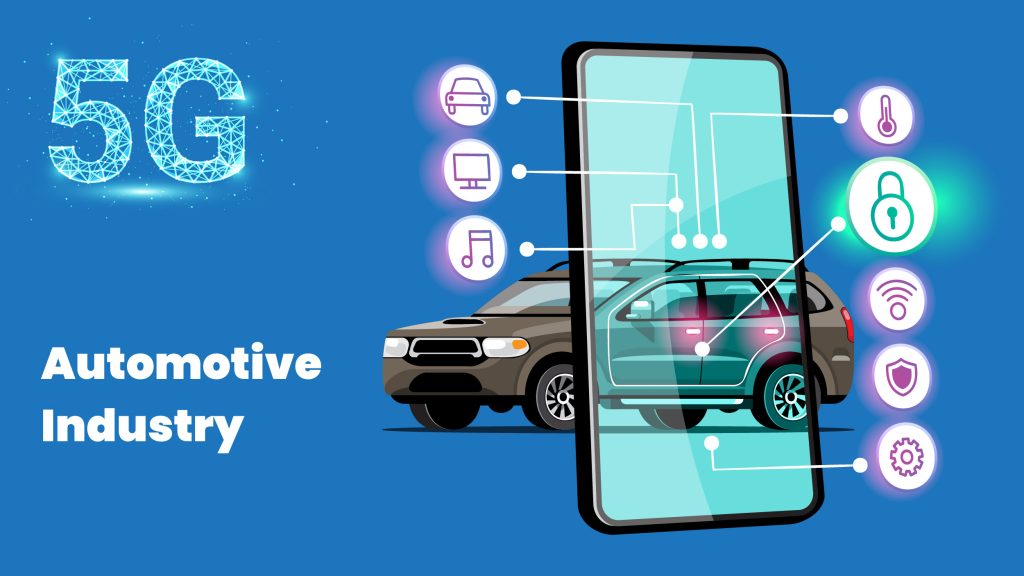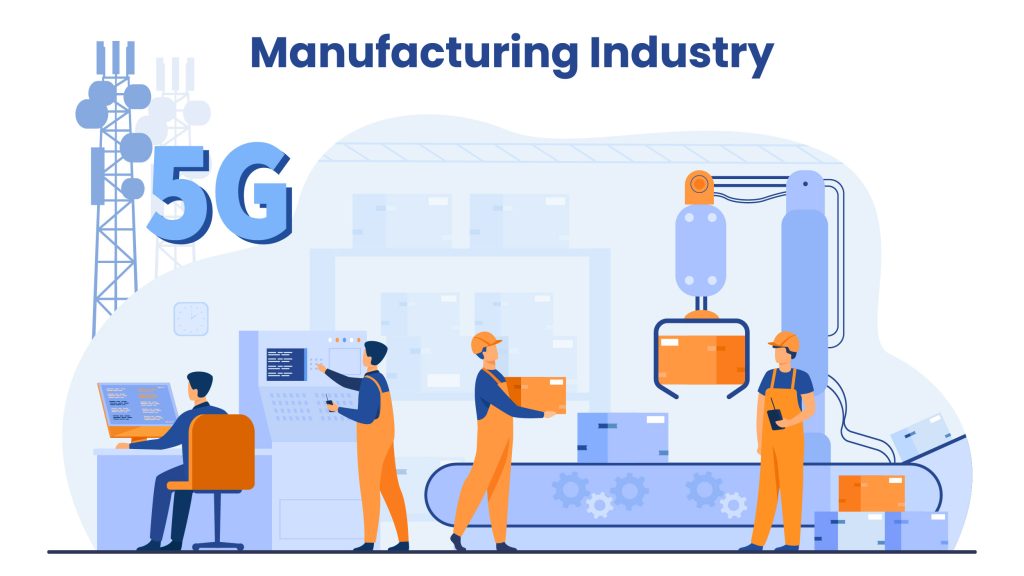Today wireless technology has become an irreplaceable part of our daily lives. An addition to the list of wireless technologies is the new 5G technology. 5G is the fifth generation of mobile networking systems that is proposed but has not been globally deployed. The 5G technology offers three important functionalities; massive connectivity for machines/devices, enhanced mobile broadband and ultra-low latency.
In short, the network bandwidth of 5G will be greater, and will simultaneously allow more devices to communicate via the network. With 5G technology there will be faster network speeds, and the lag time in communications will be lesser.
5G is yet to be implemented globally but the benefits of 5G technology will surely improve the ways internet-connected devices are used. It will also enable new possibilities in terms of products and services. So how does 5G benefit different industries and will it have a positive impact on different businesses? Here are 4 industries that will be deeply impacted by the 5G technology.
Automotive Industry
With the arrival of 5G the automotive industry can expect the first generation of driverless automated cars. It is only possible with 5G, that we can experience the union of a smart city and an autonomous car. This advanced wireless technology can also efficiently facilitate smart parking which will further contribute in reducing traffic and pollution.

This is possible because in the future, cars will be able to sense and choose the optimal route for you by coordinating with your ETA (estimated time of arrival). This technology functions based on the traffic data communicated from other cars and the roadways. Currently, only a few companies are working on this high level of automation. To deliver this type of scalable functionalities requires the combination of intelligent devices and the 5G network.
According to the research done by Gartner, the automotive industry by 2023, will create an opportunity for 5G Internet of things (IoT) solution which will be the major market leveraging more than half of the entire 5G IoT industry representing 53% of the total. Through 5G, customers will get the facility for the connected car market and other important road safety concerns which can be a guide to the upcoming era of artificial intelligent autonomous vehicles.
Manufacturing Industry
It won’t be wrong to say that the most impact 5G technology will have on the manufacturing industry. As estimated by experts, by 2035 an improved connectivity through 5G will probably generate a whopping $13 trillion in global economic value across different industries. A third of this global value is expected to be generated from the manufacturing industry alone.

5G technology can massively help the production operations in the manufacturing industry. It can make the operations more flexible and efficient while enhancing safety at the same time. This can further help manufacturers to build “smart factories.” Smart factories rely on automation, augmented reality, and IoT and it is a known fact that 5G technology powers a huge number of IoT devices and sensors.
The greatest potential of 5G, which can help enterprise connectivity like integrating the factory infrastructure, managing the operation from remote areas. Through this technology, there will be transparency in supply chain integration, low maintenance because of the high arrays of sensors in the companies, and less employees will be there on the floor.
Healthcare Industry
The healthcare industry is the only industry where there are human lives on the line. It is a highly unpredictable sector and healthcare practitioners have to make quick decisions and there is no room for mistakes. The healthcare industry also has the most amount of data to be handled and to be accessed in real time. This makes informed decision-making even more important.
This is where 5G technology can come in handy. With its high throughput and low latency potential, 5G networks can potentially make way for quicker life-saving decisions to be made. Quick decisions can also be made inside the hospital or remotely as 5G can enable quick access to real-time data. For an industry that generates heaps of data can benefit tremendously with 5G’s low latency. It can allow smooth transmission of data without creating issues for the rest of the network. The 5G technology can completely transform the healthcare sector and boost the revenue generation rates as well.
Apart from improved data transfer speeds, 5G technology can also benefit the healthcare sector with imaging diagnostics, high-definition telehealth video streaming, and also sharing results with care teams.
Transportation Industry
From public buses to private logistics fleets, 5G can not only connect devices and people but also vehicles. 5G technology can completely transform the way people or goods travel across the world. It can provide increased visibility and efficiently control transportation systems.
As the use of 5G networks becomes more widespread, cities can experience more options like end-to-end visibility into their transportation systems. The best suitable example for this is, 5G can help cities implement real-time route planning. It can be based on traffic or even weather conditions. Moreover, it can allow public transportation workers to make use of IoT-connected sensors to effortlessly monitor the health of trains and other vehicles as well.
Though the 5G technology is not globally deployed yet, its implementation can pave the way for numerous innovative breakthroughs and lead the world to an unimaginable high-tech future. Processing of goods from factory to customers which includes asset tracking, fleet management and last-mile delivery, all these services with 5G connectivity can provide all the features much more efficiently.
Wrapping it up
The future impact of 5G technologies on different industries can provide numerous benefits in different ways. Faster upload and download speed, easier streaming with authentic connections and instant response time are the benefits that can be derived by the customers. Different industries such as automotive, manufacturing, healthcare and transportation will experience more advantages with ultra-low latency and massive connectivity.
As the world after the pandemic has completely transformed to the digital space by attracting more users of technology, the speed and efficiency of the network demands to be upgraded soon.
